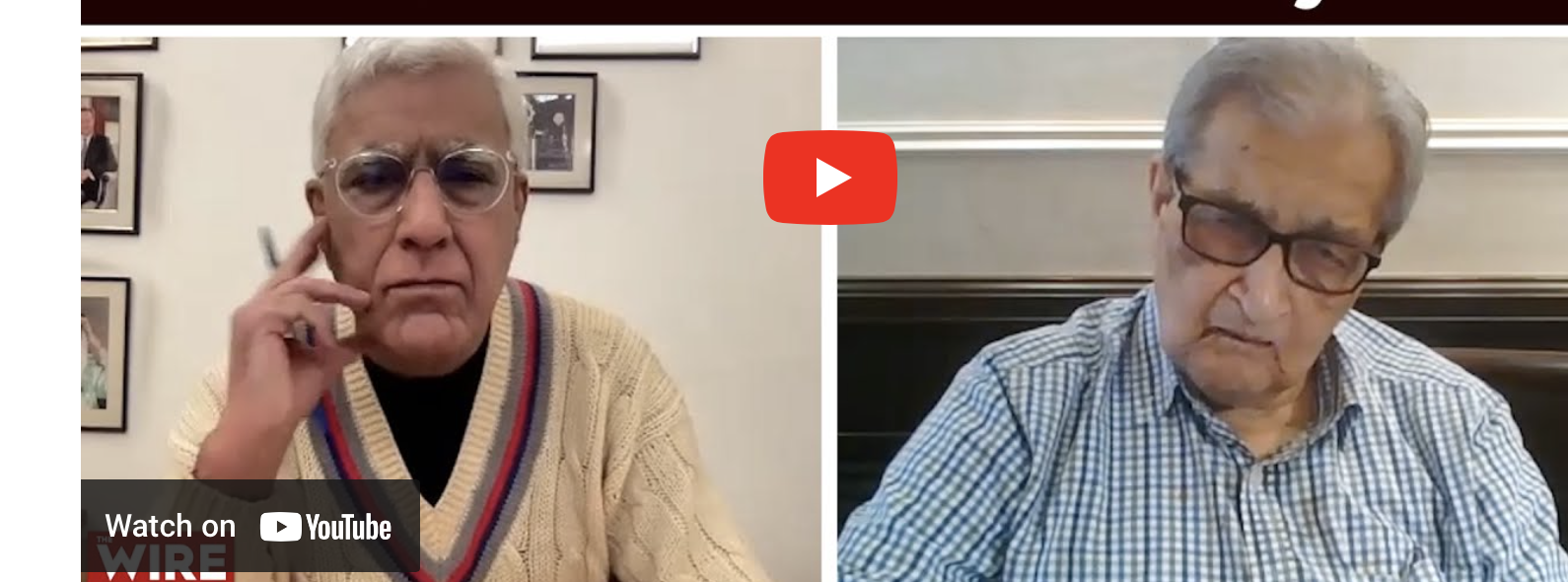“It’s a terrible folly on the part of the government to ignore the multiple pluralist nature of the country and we have every reason to be upset by the reduction of India.”

Narendra Modi played the Hindutva card several times during his Gujarat campaign. Credit: PTI
The interview covered professor Sen’s opinion on the communitarian majoritarian policies of the Narendra Modi government, including its mistreatment of the minority community, especially Muslims, in the social and political sphere. He reiterated his stance on the Modi government, saying “it’s the most appalling in the world.”
Below is the full transcript of the interview. Watch it here. The transcript has been edited lightly for style and clarity.
§
Is the Narendra Modi government the most appalling government in the world? That is the view of one of the world’s best-recognised Nobel laureate and professor of economics and philosophy at Harvard University, Amartya Sen.
Today, professor Sen joins me to discuss his opinion of the Narendra Modi government.
Professor Sen, in an interview to the French newspaper Le Monde published on December 19, you said, and I’m quoting you, “The Indian government is one of the most appalling in the world.”
Can you start by explaining what brings you to that conclusion?
A country is governed by the government in question, and what it can do and what it can help and so on. Now, the Indian government’s work has so far been really rather terrible, and that goes back to not just today but also to the time of high COVID-19 when suddenly the government decided to introduce various methods including making travel difficult, making job-seeking difficult, betraying lots of people who depend on that for their livelihood by being able to earn a little income, to be able to get home and have shelter there, if needed. [Those people] suddenly lost that.
Then we got apologies from the government saying, ‘Oh, we are terribly sorry that we are insisting that you all stay at home because of the COVID danger.’
The real problem wasn’t so much that people were being restricted at home; they had no home to go to, and the result was that we had a dramatic decline in the living standard of people, and many of them had to walk hundreds of miles to get back home. Some kind of shelter in their little village and so on. Many of them had no job at all to earn a little income. So I think we could see the type of neglect that we found [during the COVID-19 crisis] to be a real agony.

Migrants in Jalandhar, May 8, 2020. Photo: PTI
Let me quote from that Le Monde interview. There you said, and I’m quoting you, “The Indian government is communitarian in the narrowest sense of the term, attacking Muslims and propagating the idea that Hindus form a nation.” How concerned are you about this majoritarian communitarian attitude of the Modi government?
I am very much concerned about that. India has always been a multinational, multi-ethnic country. Christians have come to India for shelter since the third century. Jews have come from the first century. Muslim traders got into the western part of India well before the conquest of the northwest began.
The patterns of exchange, being able to help each other, has been a major feature of the Indian State, and even though there have been fights and conquests and so on, this cannot take us away from the fact that the country has been, basically, a multinational, multi-ethnic existence.
Surely, this is not only normal living, which is there, it includes economics, social relations, political concerns but also arts and humanities and creations. The Taj Mahal, for example, is not just a Hindu creation, it is a mixture of the different cultures that make up this country.
To deny that, and to go for a kind of unilateral, unique focal country, is a reduction of India, from a big grand country of many to the one which is very narrowly concentrated on a particular focus – the Hindu India, in fact.




प्रतिक्रिया